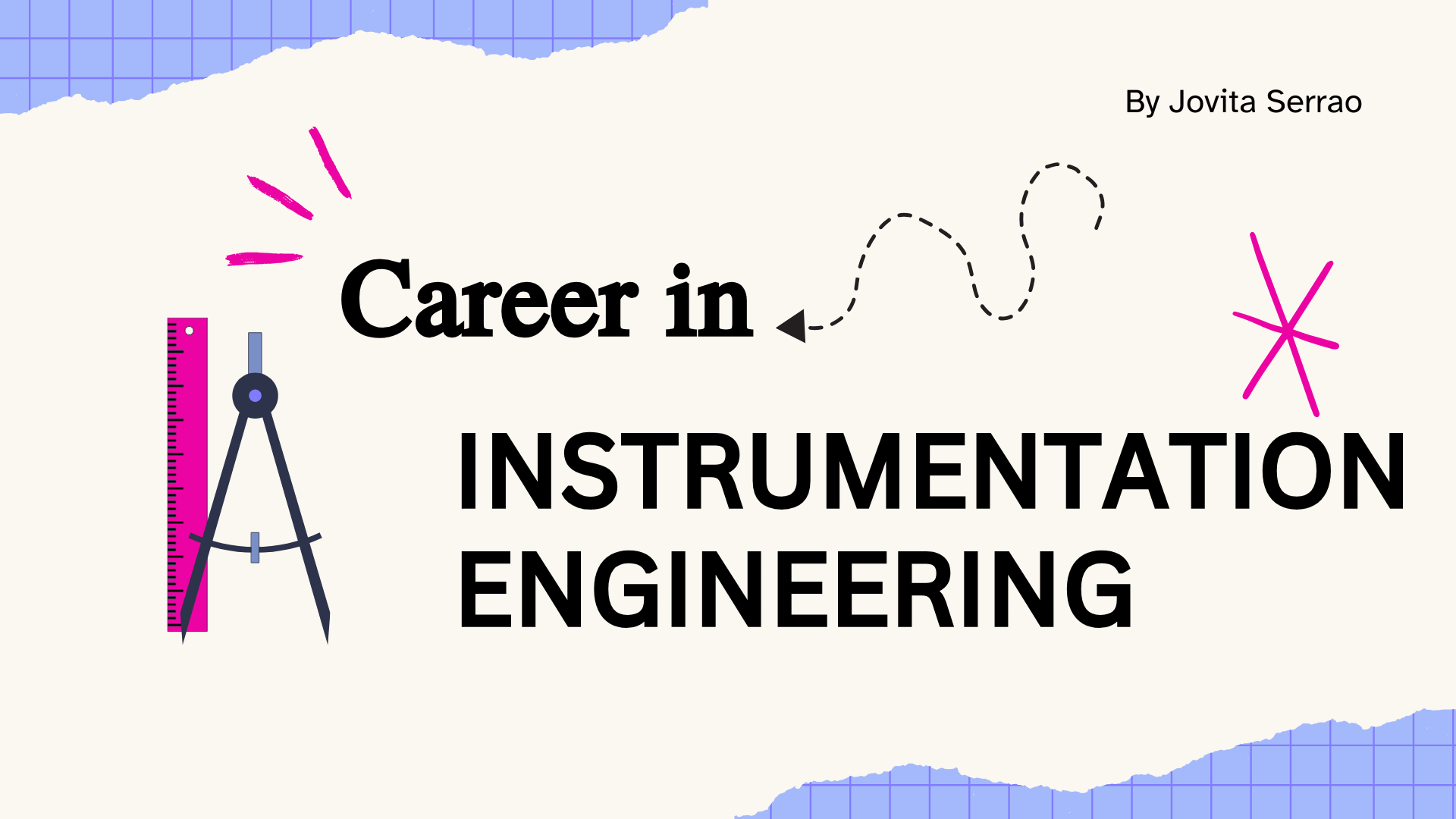
Exploring a Career in Instrumentation Engineering: A Comprehensive Guide
Are you fascinated by the precision of measurement systems and the technology behind control systems? Do you wonder why you should choose a career in Instrumentation Engineering, what specializations are available, and what a typical day in this field looks like? This blog provides an in-depth guide for students in India who are interested in pursuing a career in Instrumentation Engineering.
Why Choose a Career in Instrumentation Engineering?
A career in Instrumentation Engineering is ideal for those who are intrigued by the technology of measurement and control systems. Instrumentation Engineers are pivotal in designing, developing, and maintaining equipment that measures and controls physical variables such as temperature, pressure, flow, and level. This field offers diverse career opportunities across various industries, including manufacturing, aerospace, and automation.
Specializations in the Career
Instrumentation Engineering includes several specializations, such as:
- Process Control Instrumentation
- Industrial Automation
- Control Systems Engineering
- Instrumentation for Aerospace
- Biomedical Instrumentation
Day-to-Day Activities of an Instrumentation Engineer
The daily activities of an instrumentation engineer can vary depending on their role and specialization but generally include:
- Designing and implementing instrumentation systems for measurement and control
- Calibrating and maintaining measurement devices and control systems
- Troubleshooting and resolving issues related to instrumentation equipment
- Developing and testing new instrumentation technologies
- Collaborating with engineers and technicians to integrate instrumentation systems into larger systems
- Ensuring compliance with industry standards and safety regulations
Eligibility Criteria
To pursue a career in Instrumentation Engineering, candidates in India typically need:
Pathways After SSC (10th Grade):
- Enroll in a Diploma in Instrumentation Engineering, which can be followed by lateral entry into the second year of a Bachelor’s degree program.
Pathways After HSC (12th Grade):
- Complete 12th grade with a focus on Science, including subjects like Physics, Chemistry, and Mathematics.
- Qualify for entrance exams such as JEE Main, state-level engineering entrance exams, or specific exams for instrumentation programs.
Higher Education:
- A Bachelor’s degree in Instrumentation Engineering (B.E./B.Tech).
- Advanced positions may require a Master’s degree (M.E./M.Tech) or PhD.
Job Opportunities
Instrumentation Engineers have diverse job opportunities in various sectors, including:
- Manufacturing and process industries
- Aerospace and defense
- Oil and gas sector
- Automation and control systems companies
- Research and development organizations
- Utilities and infrastructure
Salary
Salaries for instrumentation engineers in India can vary based on experience, location, and specialization. On average:
- Entry-level instrumentation engineers can expect to earn between INR 3 to 6 lakhs per annum.
- Mid-level professionals may earn between INR 6 to 12 lakhs per annum.
- Senior-level instrumentation engineers and managers can earn INR 12 lakhs and above per annum.
Key Skills Required
To excel in Instrumentation Engineering, one must possess:
- Strong understanding of measurement and control systems
- Proficiency in calibration and maintenance of instrumentation devices
- Knowledge of process control and automation technologies
- Analytical and problem-solving skills
- Ability to work collaboratively and communicate effectively
- Familiarity with industry standards and safety regulations
Industry Trend/Future Prospects
The future of Instrumentation Engineering is promising with trends such as:
- Integration of Industry 4.0 and smart automation technologies
- Advances in sensor technology and real-time data acquisition
- Growth in the use of instrumentation for environmental monitoring
- Development of sophisticated control systems for complex processes
- Increased focus on sustainable and energy-efficient technologies
Options of Institutes
Top Institutes in India:
- Indian Institute of Technology (IIT) Delhi
- Indian Institute of Technology (IIT) Kharagpur
- Indian Institute of Technology (IIT) Roorkee
- Manipal Institute of Technology (MIT), Manipal
- Indian Institute of Technology (IIT) BHU
Top Institutes in Maharashtra:
- College of Engineering - [COEP], Pune
- Ramrao Adik Institute of Technology - [RAIT], Navi Mumbai
- MKSSS's Cummins College of Engineering for Women, Pune
- Vishwakarma Institute of Technology, Pune
- Vivekanand Education Society Institute of Technology - [VESIT], Mumbai
Fees
The cost of an Instrumentation Engineering program in India can vary widely:
- Diploma programs: INR 20,000 to 50,000 per year
- Bachelor’s programs: INR 1 to 2 lakhs per year in government colleges; INR 2 to 5 lakhs per year in private colleges
- Master’s programs: INR 1 to 3 lakhs per year
Scholarships/Loans
Many institutions offer scholarships and loans, such as:
- National Scholarships (e.g., MHRD scholarships)
- State Government Scholarships
- Institution-specific scholarships
- Education loans from banks and financial institutions
In Summary
A career in Instrumentation Engineering offers the opportunity to work on cutting-edge technologies and contribute to optimizing measurement and control systems across various industries. By developing the necessary skills and staying informed about industry trends, you can build a successful career and make a significant impact. For personalized advice and guidance, feel free to reach out!
Author: Ms. Jovita Serrao
Position: Founder and Career Counselor, Career Pravaas
Contact Information: jovita.s@jetech.co.in
Stay tuned for more insights and guidance on various career paths. If you have any questions or need personalized advice, feel free to reach out!
Keywords: Instrumentation Engineering, career in Instrumentation Engineering, Instrumentation Engineering specializations, day-to-day activities of Instrumentation Engineers, Instrumentation Engineering eligibility criteria, job opportunities in Instrumentation Engineering, Instrumentation Engineering salary in India, career progression in Instrumentation Engineering, key skills for Instrumentation Engineering, industry trends in Instrumentation Engineering, top institutes for Instrumentation Engineering in India, top institutes for Instrumentation Engineering in Maharashtra, Instrumentation Engineering fees, Instrumentation Engineering scholarships and loans, experts in Instrumentation Engineering
